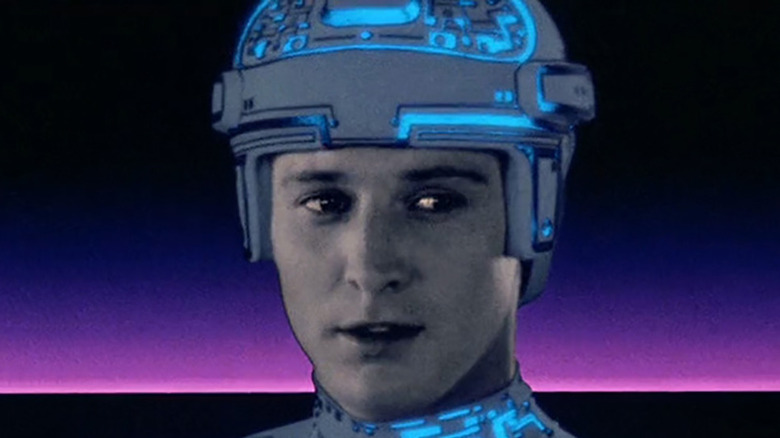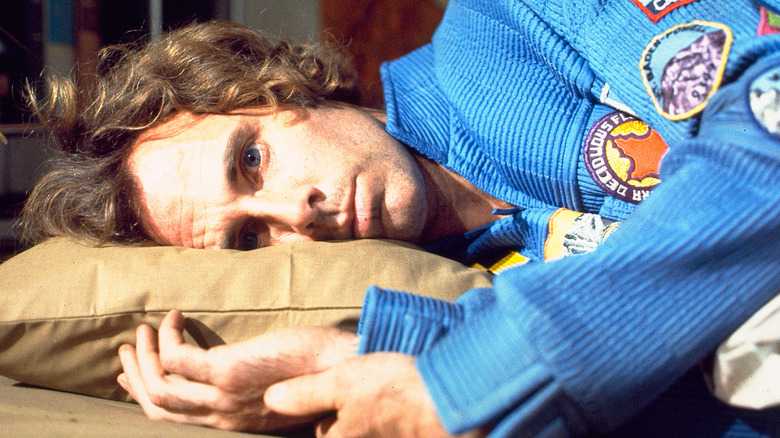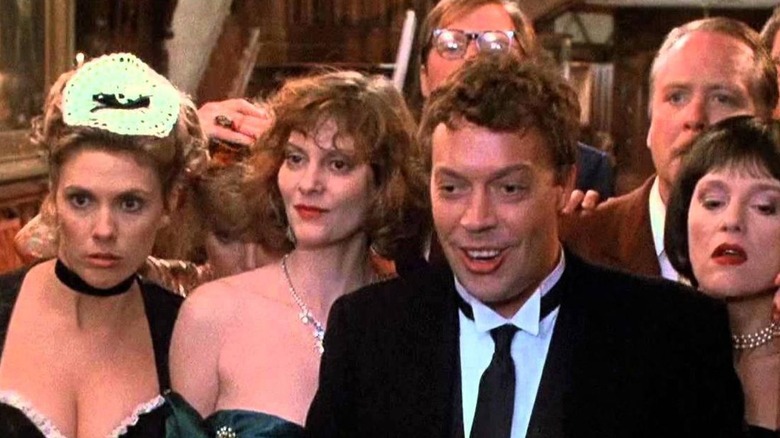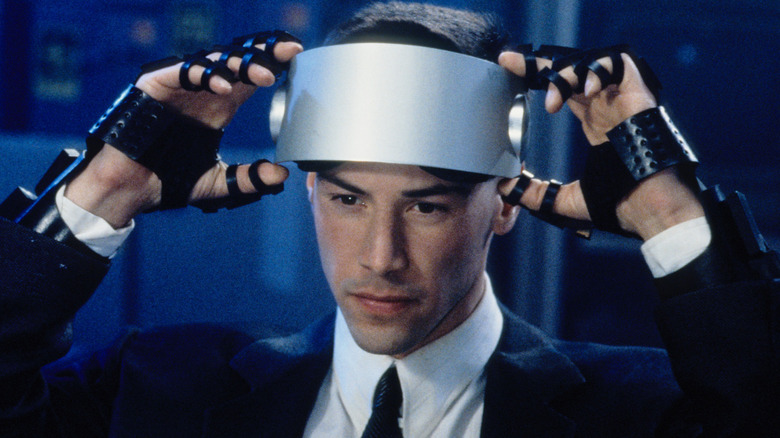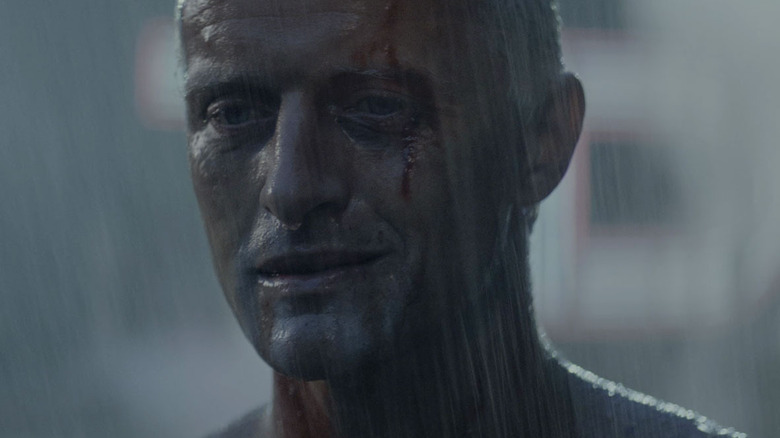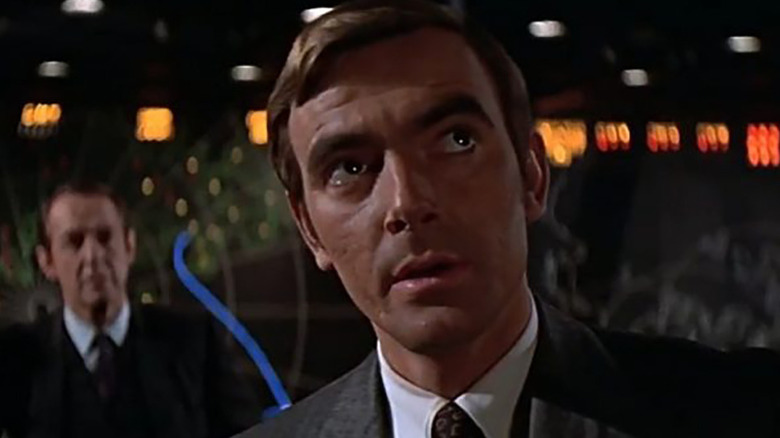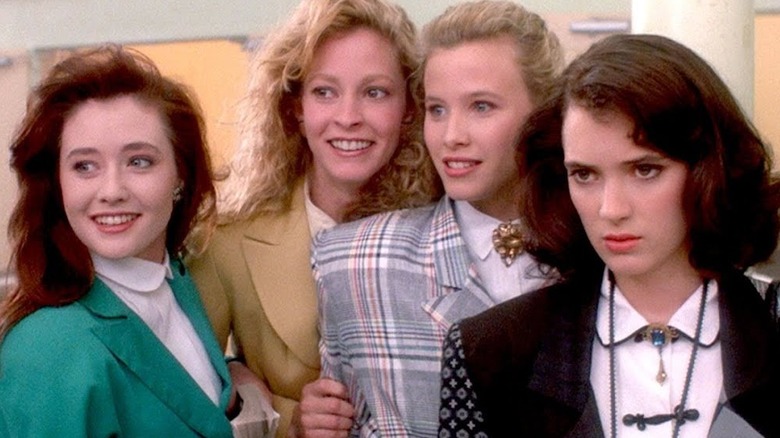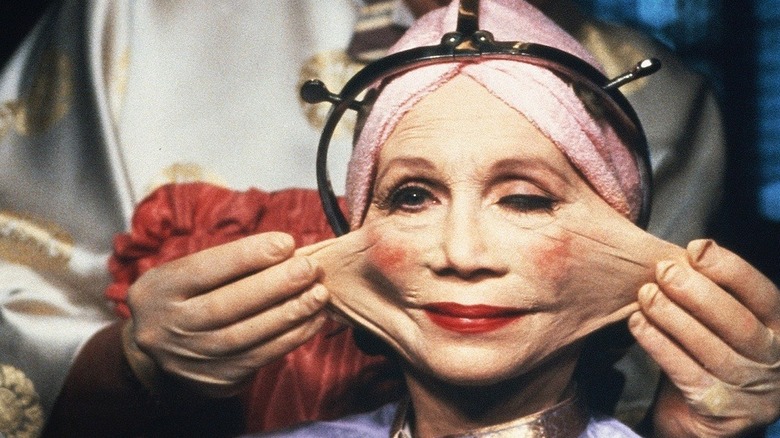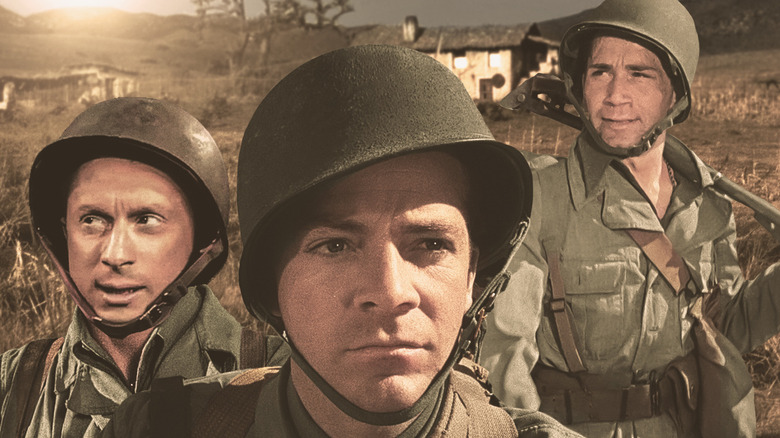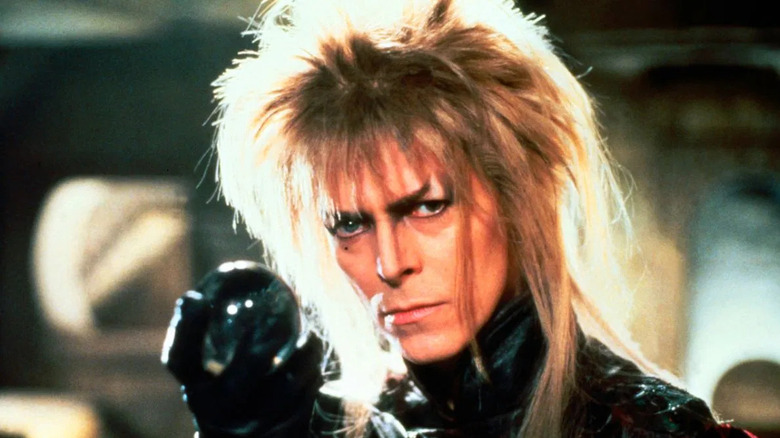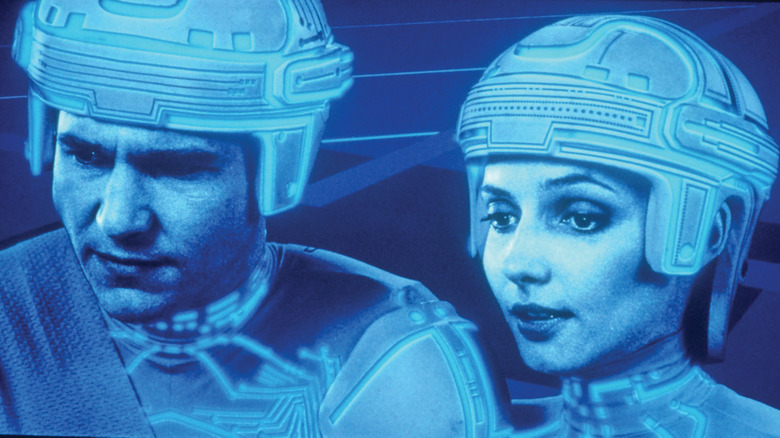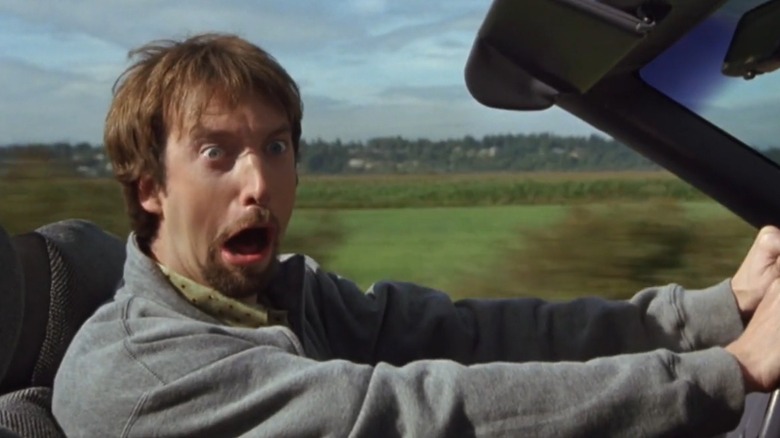Box Office Bombs That Were Way Ahead Of Their Time
Every once in a while a movie comes along that sets the world on fire, racing up the box office charts and becoming an instant Hollywood classic. Sometimes, though, a box office bomb can be just as impressive and become every bit as memorable and enduring as the biggest ticket sales earners. These films are often just too far ahead of their time to find success with audiences when they're released, with subject matter or style and tone that's just too different — or downright bizarre — for the era.
But thanks to the magic of home video, late-night reruns, and now online streaming, new audiences can rediscover these lost greats once the world is ready for them. Once their ideas aren't so unusual, and aren't so different anymore, they can be appreciated the way they always should have been. Though it's impossible to say if these movies would have been more successful at the cinemas if they'd been released later, one thing's for sure: Once they managed to find their audience, they received the immortality they never could on release.
From cult classics to forgotten gems, here's a list of some of Hollywood's biggest box office bombs that were way ahead of their time.
Silent Running
A lesser-known survivalist classic, "Silent Running" was one of the many science fiction films released in the early 1970s in the wake of "2001: A Space Odyssey," and is in fact directed by that film's special effects supervisor. It wasn't a hit in cinemas, but would earn a following for its ecological message and its unique story that would influence many that followed. Set in a post-apocalyptic future where plant life on Earth is dying, space cruisers have become "arks" ferrying specimens of flora around the solar system for preservation. A crew of four — including botanist Freeman Lowell — are surprised when they are ordered to jettison their precious cargo and return their cruisers to civilian service. Lowell (played by Bruce Dern, who modern audiences will recognize from "The Hateful Eight") can't bring himself to destroy the plants under his care, though. He rebels against his orders and sets out to keep the forest alive, with only the help of two robotic drones.
"Silent Running" proves to be a solid mix of thriller, disaster movie, and sobering drama with an important environmental message. It has much in common with modern sci-fi classics like "Sunshine" and "Moon," which may have used the film as inspiration. In the tradition of "The Martian," too, much of the film focuses on Lowell alone in space attempting to survive, while his robot assistants and personal mission will recall shades of Christopher Nolan's "Interstellar." Though it bombed at the box office, Roger Ebert gave the film a glowing review, awarding it four stars.
Clue
In what very well may still be the best film ever inspired by a family board game, the 1985 box-office disaster "Clue" has become a cult classic over the years — though it was not accepted by critics upon its release. It doesn't deliver the kind of rip-roaring belly laughs, physical comedy, or smarmy sarcastic humor that the '80s were known for, but what it does do, it does exceptionally well. Instead of the broad comedy audiences had come to expect from movies like "Ghostbusters" or "Spaceballs," "Clue" gave us a heaping dose of dark comedy mixed with some of the sharpest, fastest wit of any film, then or since. Superstar cast Madeline Kahn, Tim Curry, Michael McKean, Lesley Ann Warren, and others all delivered some of their most incisive performances and finest work.
Though it could be mistaken for a madcap caper (and in many ways it absolutely is), it's the fast-paced, blink-and-you'll-miss-it style humor that holds up the murder mystery movie and prevents it from falling into slapstick — and probably why it failed to find an audience. Its clever gimmick of including three different endings that you'd only see one of with each viewing was also well ahead of its time, as well as its many meta jokes. It may also have been a bit too adult for kids, and a bit too kiddy for adults, but has since become appreciated for its snappy dialogue and brilliant script.
Johnny Mnemonic
Keanu Reeves starring in a dystopian cyberpunk thriller where he must tap into a digital realm to save the world, and it wasn't a huge box office hit that kicked off a massive global franchise? Well, we must be talking about 1995's "Johnny Mnemonic" then, the science fiction adventure where Reeves played the eponymous Johnny Mnemonic, a hired gun who becomes a digital courier thanks to an advanced cybernetic implant that allows him to store gigabytes of information in his brain. In the film, Johnny takes on a risky mission to pass information between the world's mega corporations, while becoming the target of both criminal kingpins and a group of post-apocalyptic rebels looking for an edge. Boasting one of the craziest casts you're likely to find, the film's roster included Ice-T as a rebel gang leader, Dolph Lundgren as a street preacher, and Henry Rollins as an underworld surgeon.
But the ambitious attempt to adapt one of William Gibson's best stories failed to find an audience, and critics weren't much kinder to it than the ticket sales were. But ironically it's that it was made before "The Matrix" that may have hurt it the most. Had it been produced just a half decade later, better special effects and more innovative film techniques pioneered by Reeves' next sci-fi stunner may have elevated "Johnny Mnemonic" into another classic and box office smash, instead of the low-fi cult favorite it became.
Blade Runner
Unlike "Johnny Mnemonic," there isn't much that this one could have done differently to impress at the box office, and the film probably wouldn't have turned out any better with more modern FX or filming techniques. Even in 1982, "Blade Runner" was a breathtaking film, following Harrison Ford as Rick Deckard, a law enforcement officer in a dark techno-future who's been assigned to capture and kill rogue androids who've defied their programming. During his hunt for Roy Blatty — a replicant who wishes to stay alive rather than be deactivated as he was intended — Deckard begins to question everything about the world of replicants, and even his own personhood. High-concept and sometimes esoteric, part of what kept this movie from achieving success at the time may have been aggressive studio meddling, as producers forced director Ridley Scott to heavily chop up the film, adding what many consider now to be a hackneyed narration from star Ford.
Over the years it's become more than just a cult classic, and it's now considered a bona fide cinematic masterpiece for its stylistic vision of the future, its luscious cinematography, its futurist score, realistic effects, and nuanced performances from its cast. In the 1990s it received a director's cut which added back in much of the cut footage and removed the voiceover, which many believe to be far superior to the theatrical version of the film. Still, even in its original form it's been considered a triumph, and it's only gotten more revered with subsequent expanded edits and remastered cuts.
Colossus: The Forbin Project
With the ominous shadow of the Cold War looming over the nation in 1970, Universal released a little political sci-fi-ish thriller called "Colossus: The Forbin Project," based on the book "Colossus" by Dennis Feltham Jones. The movie, like the book, told the story of a group of scientists and politicians caught in the web of an artificially intelligent computer system designed to manage the nation's defense system, and their attempts to prevent the supercomputer from triggering World War III. In an era when few people even understood the term "computer," let alone what they were capable of, the movie offered audiences a glimpse into a dark future where electronic machines went haywire and took control of the fate of mankind.
A slowly paced, thought-provoking drama, it boasted very little if any action. It was a talky movie that mostly involved doctors and bureaucrats in board rooms debating the issues and desperately clinging to their last hopes of averting an apocalypse. With few viewers who understood the topic at hand though, it was seen as more science fiction than tense drama — but without any of the ray guns or spaceships. Unable to pin down its genre, it probably just confused audiences, and those who understood it were likely more frightened by the prospect of how close nuclear Armageddon seemed in the midst of the Cold War, rather than being entertained by an engaging thriller. But years before the subject of A.I. takeovers became a Hollywood staple, "Colossus: The Forbin Project" gave us a terrifying glimpse into what the future of technology could bring.
Heathers
Though remembered now as a wickedly funny black comedy starring Winona Ryder and Shannen Doherty before either would find fame with "Beetlejuice" and "Beverly Hills, 90210" respectively, "Heathers" was a major bomb on release, barely crossing the million-dollar mark. The story follows four popular high school girls, Veronica, Heather, Heather, and Heather — explaining the movie's title — whose lives are thrown upside down when a mysterious bad boy comes to down. Christian Slater stars as Jason Dean, a cynical, angry youth intent on murdering his new classmates, whom he views as elitist snobs, and hoping to pass off their deaths as suicides.
In what could have been seen as a portent of real-life things to come, it was instead viewed as a grossly cynical, barbaric, and cruel film, with Roger Ebert describing it as a "morbid comedy." And while it was all of those things, it was not without a sense of irony about the whole proceedings. It took years of late-night reruns for audiences to catch on and appreciate it for its sickly sense of humor. By the 1990s, both Ryder and Dougherty had become stars elsewhere, and Gen-X teens were happy to embrace the film's jaded, hateful attitude toward society.
"Heathers" would become a template for movies like "Mean Girls," for while its dark comedy didn't fit with the times, the times slowly grew to fit it.
Brazil
You may have noticed a trend developing among our picks — that black comedies and dystopian sci-fi epics tend to be the two genres with the most under-appreciated box office bombs. Terry Gilliam's black comedy, dystopian, sci-fi epic "Brazil," has the perfect recipe for failure at the box office. But despite its paltry financial take, the film ranks on the BFI's list of the Top 100 British Films, and is often regarded as one of the best sci-fi films ever made. Fresh off of his eccentric adventure film "Time Bandits," Terry Gilliam created "Brazil," a movie set in a bleak future where Sam Lowry has persistent visions of a beautiful woman amidst his horrifying and disturbing nightmares. Working as a pencil pusher at the bottom of a bureaucratic machine, he comes across the woman in waking life and becomes obsessed with finding her again.
Pervaded with unsettling imagery, and set in a grim, machine-like future, it all adds up to an absurdist, surreal story that may have just been a bit too unusual for audiences in the mid-1980s looking for a light comedy or a sci-fi adventure. In the years since, though, audiences have found it a tantalizing look at a dark future, and a biting critique of modern society. And in an era where visionary shows like "Black Mirror" have found success exploring similar themes, it seems "Brazil" might have found a better home had it been made today.
A Walk In The Sun
In the golden age of cinema, war movies were a popular genre, but were far from realistic. They often gave audiences an exaggerated, optimistic interpretation of military life. Stars like John Wayne, Gary Cooper, and Humphrey Bogart played larger-than-life heroes who saved the day in glorious combat. Especially with world wars raging around them, Hollywood wasn't about to make military action look anything less than a noble and gallant pursuit, something that all good men should do. Even when violence and bloodshed was shown, it was all for the good of the nation, helping to spur on the heroic actions of its stars. But one movie released in 1945 would change all that. This box office bomb that was unafraid to show the horrifying realities of war, faithfully recreating the disaster, confusion, and nightmare of real combat.
In an era where most war movies were jingoistic propaganda, "A Walk In The Sun" was different. Visceral and upsetting for audiences of the time, its frank depiction of war may have contributed to its lackluster performance. Though it received good reviews, even critics made note of the film's disturbing authenticity for its day. With so many viewers having lost loved ones in a war that had ended just months before its release, it couldn't have been anything other than a depressing reminder of what they had endured. In the years since, however, the realism of modern war movies like "Apocalypse Now," "Saving Private Ryan," and "Black Hawk Down" have helped make those films more beloved, not just as movies, but as powerful social statements.
Labyrinth
One of the most beloved fantasy films of the '80s, it's hard to imagine that "Labyrinth" was an absolute catastrophic failure in theaters. Directed by Muppet-maker Jim Henson and featuring global megastar David Bowie, "Labyrinth" may have seemed on paper like a massive hit in the making. But in the 1980s, fantasy wasn't exactly the most popular genre. Ron Howard's "Willow" was still two years away, and Ridley Scott's slickly produced "Legend" had similarly struggled to find an audience despite its strong cast and high-profile director. "Labyrinth" also possessed a certain dark edge to it that — while not uncommon for fantasy films of the day — made it less than child-friendly.
In the film, Bowie starred as the Goblin King, the ruler of a magical realm who has come into possession of a young child whose sister Sarah now seeks to rescue. Based on the artistic works of illustrator Brian Froud, "Labyrinth" was a visual masterpiece dripping with style and otherworldly delight. Bowie was absolutely electric as the Goblin King, and though it took some years, the movie eventually became a favorite of '80s kids everywhere as they aged into the darker material. With fantasy fare like "Lord of The Rings" and "Harry Potter" becoming some of the biggest franchises in Hollywood, "Labyrinth" today looks well ahead of its time.
Tron
"Tron" may be the poster child for box office bombs ahead of their time. It's the rare movie so forward-thinking that the very technology used to create it befuddled even Hollywood upon its release in 1982. It's been rumored that the Academy Awards refused to nominate the film for Best Visual Effects because they ironically felt that its pioneering use of computer-generated imagery wasn't actually a valid special effect. True or not, the film got no accolades for its FX despite its groundbreaking visuals. Nor did it garner much appreciation for its trend-setting story of a man trapped inside a digital world, where programs and information take the form of human-like character avatars, piloting massive machines and vehicles down electronic roadways.
Once released on home video, however, "Tron" garnered more attention and quickly gained cult status, helping it spawn everything from comic books and video games to a long-awaited big budget sequel, a spin-off animated series, and even an announced third film. Considering that sequel "Tron: Legacy" earned more than $400M at the box office in 2010, it's not hard to argue that the original may have suffered due to being released long before audiences were ready. There's also no denying that the movie's trailblazing story set in an electronic frontier, coupled with its early use of CGI, were way ahead of their time.
Freddy Got Fingered
Sometimes listed as one of the worst movies of all time, "Freddy Got Fingered" was the starring vehicle for Canadian cult comic Tom Green. Ostensibly a gross-out comedy, critics widely panned the film on release. Roger Ebert refused to even rate the film, only giving it a thumbs down, saying, "This movie isn't below the bottom of the barrel. This movie doesn't deserve to be mentioned in the same sentence with barrels."
But viewed from an entirely different perspective than the farce it at first appears to be, it becomes a meta take on Hollywood itself — in particular of sleazy studio executives and their fascination with following trends and handing creators ungodly amounts of money to produce content they don't understand. As pointed out by YouTube channel "Red Letter Media" in their retro review of the film, the story of "Freddy Got Fingered" often mirrors the real-life situation of Tom Green himself. When Tom the character is given $1 million dollars to produce a cartoon, he blows nearly all of it on harebrained schemes. The real Tom Green meanwhile was handed a multi-million dollar budget for "Freddy Got Fingered," and what he produced was an awful movie that bombed horribly. Many seem to agree that the comparison is too stark to be anything but intentional.
In Ebert's review, he concluded that, "The day may come when 'Freddy Got Fingered' is seen as a milestone of neo-surrealism." We suggest that day is coming, but if we're honest, we're still not sure the world is truly ready to accept this one.
